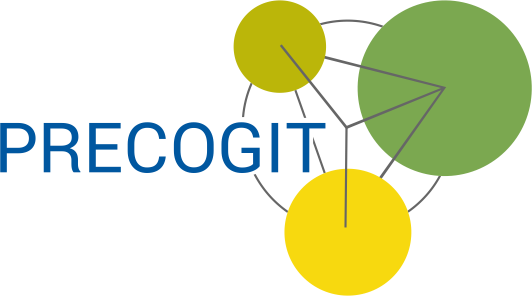Documentation is not a tedious obligation but an investment in quality, transparency, and continuity. It provides clarity, keeps knowledge alive, and ensures that complex IT projects remain successful in the long run.
1. Why Documentation Matters
Documentation is much more than a formal project requirement. It forms the foundation of successful collaboration. It makes decisions traceable, connects business and technical knowledge, and preserves valuable information.
At PRECOGIT, we see documentation as a bridge between technical complexity and business understanding. When it is clearly structured and consistently maintained, it provides orientation for all stakeholders and strengthens the stability of every project well beyond the go-live phase.
2. Ensuring Knowledge Transfer and Continuity
Projects evolve continuously. People change positions, and external consultants come and go. Well-maintained documentation ensures that knowledge remains accessible, regardless of who is currently involved in the project.
Our experience shows that companies benefit most when they integrate documentation from the very beginning of the project process. Those who maintain it continuously rather than compiling it at the end can operate confidently and independently after go-live. This creates genuine continuity and independence.
3. Fostering Communication and Transparency
Documentation is also a powerful communication tool. It creates a common foundation between business departments and IT, reduces misunderstandings, and helps structure processes clearly.
In complex system landscapes such as SAP implementations or integration projects, proper documentation determines whether testing proceeds in an organized or chaotic way. That is why, at PRECOGIT, documentation is not a separate task but an integral part of every project phase, from concept to handover.
4. Increasing Efficiency and Security
Good documentation saves time, effort, and resources. It prevents duplicate work, makes existing knowledge quickly accessible, and strengthens compliance and audit security, especially in regulated industries.
It also simplifies onboarding for new team members, supports an agile way of working, and promotes sustainable project quality.
5. What Defines Good Documentation
Effective documentation is:
- clearly written and to the point
- continuously maintained rather than created once
- consistently structured and easy to access
- supported by visuals to make relationships clear
- integrated into project workflows and tools
Conclusion
Documentation may appear insignificant at first glance, but it is a crucial success factor in IT projects. It keeps knowledge alive, fosters clear communication, and builds trust that extends beyond the project’s end.
At PRECOGIT, documentation stands for quality, transparency, and sustainable collaboration. These values form the foundation for long-term project success.

